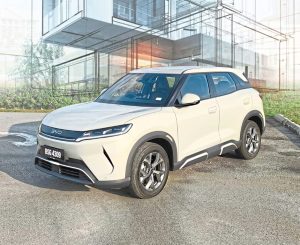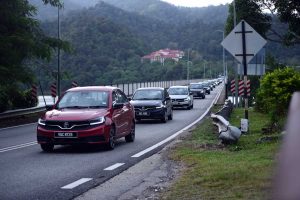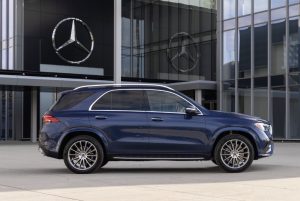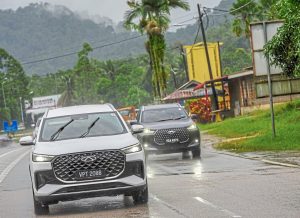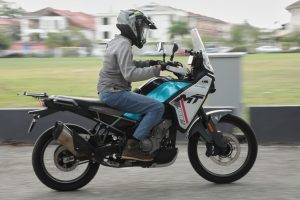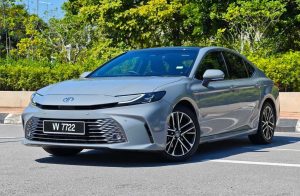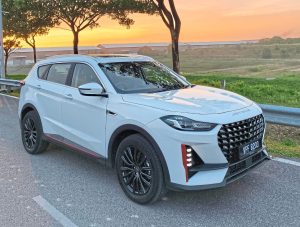BURIRAM (Thailand): In the quest to tackle global warming, battery electric cars (BEVs) hog the limelight nowadays and are seen as the ultimate zero-emission mobility solution.
While BEVs are part of Toyota’s line-up, the global automaker believes that a multi-technology approach is better in reducing the most net carbon emissions globally and to achieve carbon neutrality or net zero emissions.
Toyota Motor Corp chairman Akio Toyoda has pointed out that providing access to multiple technologies is a more inclusive path towards carbon neutrality, as different regions and customers have diverse mobility requirements, economic resources, infrastructure constraints as well as market barriers.
This is why Toyota continues to develop and offer a diverse line-up of green powertrains including hybrid electric (HEV), plug-in hybrid electric (PHEV), BEV and hydrogen-powered fuel cell electric vehicles (FCEVs).
This vision of accessible multi-technology for everyone as well as Toyota’s mission of making ever-better cars through motorsports, are also why Toyoda’s privateer team Rookie Racing joined the recent Idemitsu Super Endurance Southeast Asia Trophy 2023 in Thailand for the second straight year, with three prototype cars running on renewable fuels.
The three prototype cars, namely the hybrid Prius GR and GR86 concepts, both using carbon-neutral (CN) fuel derived from renewable bio-fuel and hydrogen, as well as a hydrogen-powered GR Corolla H2, successfully completed a 10-hour brutal duel of endurance at the Chang International Circuit in Buriram in December 2023.

Rookie Racing's Toyota Prius hybrid GR concept, with carbon-neutral (CN) fuel derived from renewable bio-fuel and hydrogen
The 67-year-old Toyoda (racing under his pseudonym Morizo) and his 35-year-old son Daisuke, as well as Kachorn Chiaravanont, who is an executive board member of Thai conglomerate Charoen Pokphand (CP) Group, were among the race drivers.
The GR86 concept finished in fourth position overall, after running 289 laps (or around 1,316km) while the hybrid Prius GR took 11th spot, after 272 laps (or 1,239km).
The GR86 concept is powered by a 1.4-litre turbocharged engine, developed from the unit in the production GR Yaris and the hydrogen engine used by the Corolla H2.
The hydrogen-powered GR Corolla H2 took 55th spot, after completing 161 laps (or 733km).
Toyoda said by participating in the race, the automaker aims to show that exciting hydrogen-powered cars and hybrids can be carbon-neutral options.
“Despite some trouble, we were able to complete the race,” he said.
In addition, three of Toyota Gazoo Racing team Thailand’s vehicles – the Corolla, 86, and Yaris – also ran on CN fuel in the race.
It’s worth noting that the GR Corolla H2 was powered by liquid hydrogen, produced using chicken manure-generated biogas from poultry farms owned by CP Group as well as food waste processed by Toyota Daihatsu Engineering and Manufacturing Co (TDEM) in Bangkok.

Rookie Racing's hydrogen-powered Toyota GR Corolla H2 concept
The CP Group is among Toyota’s partners in Thailand that are working together to achieve a carbon-neutral society.
Toyoda said, “A car company should concentrate on making ever better cars. We will continue to work with partners on carbon neutral technologies.”
Regarding the hydrogen-engined GR Corolla H2, Rookie Racing driver Hiroaki Ishiura said, “For car lovers, an internal combustion engine can give that great sound and power that we all love. With the hydrogen engine, the only emission is water vapour.”
The GR Corolla H2 has a 1.6-litre 3-cylinder turbo engine with direct injection, and uses hydrogen tank packaging know-how from the Toyota Mirai.
The GR Corolla H2 is world’s first car to race using liquid hydrogen fuel, which allows refuelling in pits alongside other competitors.
The experimental race car is nearly emissions-free, and emits almost no carbon dioxide (CO2).

Rookie Racing's Toyota GR86 concept, with carbon-neutral (CN) fuel derived from renewable bio-fuel and hydrogen
Also, Toyota’s hydrogen-powered engine development, which started in 2021, has reached a major turning point as the technology is now some two-thirds of the way toward commercialisation, according to a recent Toyota Times report.
In November 2023, a prototype Toyota Hiace powered by a gaseous hydrogen-fuelled internal combustion engine had begun public road trials in Australia.
The prototype hydrogen Hiace uses the V6 turbo petrol engine (also in the Land Cruiser 300 series), and is rear-wheel driven via a 10-speed automatic transmission.
The engine has been modified to run on compressed hydrogen gas, using a direct-injection system and power output is 120kW with a peak torque of 354Nm.
The prototype’s three hydrogen tanks are similar to those used in the second-generation Toyota Mirai FCEV.

CP Group executive board member Kachorn Chiaravanont (left) and Toyota chairman Akio Toyoda posing for photos after the race
Meanwhile, this is first time that Toyota has competed with a production Prius hybrid, with only some modifications to withstand the high-performance rigours of the race track.
Toyota Motor Corp deputy chief engineer Satoki Oya said the 2.0-litre Prius hybrid race car was fitted with an improved cooling system to cope with high temperatures on the race track in Thailand.
Oya added that other improvements were made to the braking system, and power output is also 25% higher than the production car.
“The ultimate objective to make it a fun car for drivers - to put smiles on their faces,” he said.
Oya and his team certainly achieved their objective, judging by Rookie Racing driver Tatsuya Kataoka’s feedback, as he said, “As the driver, the handling (of the Prius race car) is very good. I wish the power output could be increased further, that would be fun!”

Rookie Racing's Toyota Prius hybrid GR concept, with carbon-neutral (CN) fuel
Gazoo Racing Company president Tomoya Takahashi reiterated that in Toyota’s vision of making ever-better cars, motorsports is a crucial arena where vehicle durability and performance are pushed to the limits under highly stressful and competitive conditions.
“The goal is for customers to have better choices when buying cars. Using renewable and sustainable fuels like hydogen and CN fuels also provides more options on the road towards carbon neutrality,” said Takahashi.
Meanwhile, Toyota Daihatsu Engineering and Manufacturing (TDEM) general manager Panat Leelavansuk pointed out that Toyota’s range of hybrid cars in Thailand includes the Yaris Cross, Corolla Altis, Corolla Cross, Camry, Innova Zenix and Alphard.
“Hybrid technology can immediately reduce CO2 emissions,” he said.

Gazoo Racing Company president Tomoya Takahashi: The goal is for customers to have better choices when buying cars

Photo credit: Super Turbo Thailand

Photo credit: Super Turbo Thailand

Photo credit: Super Turbo Thailand

Photo credit: Super Turbo Thailand

